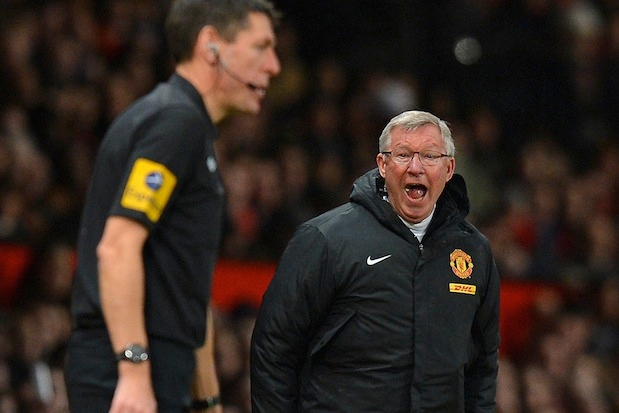For a quarter of a century Sir Alex Ferguson bestrode football’s narrow world like a colossus. Like his predecessor knight-manager, Sir Matt Busby, he ensured that it was England’s third city that was home to its top football club. His avowed aim in this reminiscence is to explain ‘some of the mysteries in my line of work’.
In that he certainly succeeds. One does not need to know anything about football to recognise that Sir Alex knows everything about it. It is no more necessary to have been a great advocate to become a great judge than it is to have been a great player to become a great manager. Ferguson’s career on pitch, only briefly described, gives no intimation of his future prowess on the touchline, where, purple-faced, gum-chewing and watch-tapping, he was more useful to his side than an extra player, or in the transfer bazaar, where he haggled, usually to excellent effect.
His homegrown ‘Class of 1992’, as gifted a group as the ill-fated ‘Busby babes’, was key to his trophy haul, and his affection for such durable club servants as Paul Scholes and Ryan Giggs is palpable. But woe betide any player who defied him; at Manchester United there could only be one master. Sir Alex does not subscribe to the theory that revenge is a dish best served cold. His disparaging comments on dissidents such as Ruud Van Nistelrooy, Roy Keane and Wayne Rooney are piping hot, while his implication that David Beckham under-achieved in the wake of his marriage suggests a somewhat monocular view of success.
What Ferguson does not explain are some of the controversies in his own life. He brushes aside as of no significance his dispute with the Coolmore racing operation in Ireland and its impact on the ownership of the club. He deals in a single sentence with his banning of reporters from Old Trafford. Nor is much light cast on his serial battles with referees and the Football Association. It is not a case of Sir Alex right or wrong; Sir Alex is always right.
But he does have a hinterland. He is an enthusiast for red wines, to be shared selectively with visiting counterparts, a Kennedy assassination buff and a collector of political biographies — revealingly, with a special section on despots. He is a Labour man to the core — but had his advice to Blair to sack the subversive Brown (to whom he was closer ‘in principle’) been taken, he might have changed the nation’s history. Meeting Angela Merkel in the directors’ box at Berlin, he reflects on how far he has come from his childhood in the shipyards in Govan. But these personal glimpses are rare. This is a memoir of the manager, not the man.
Nowadays the lifespan of Premier League managers averages little more than two years. By contemporary standards, Ferguson, who won nothing in his first six years at Manchester United, was fortunate to remain in his post. Had he been prematurely sacked, it would have been a loss to football, but not to literature.






Comments